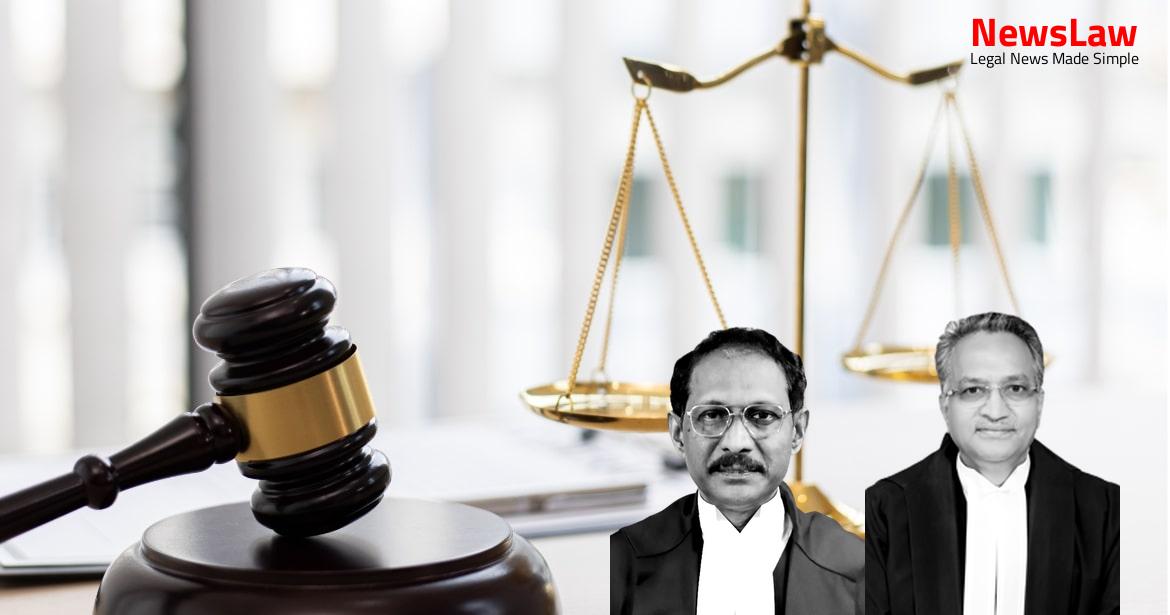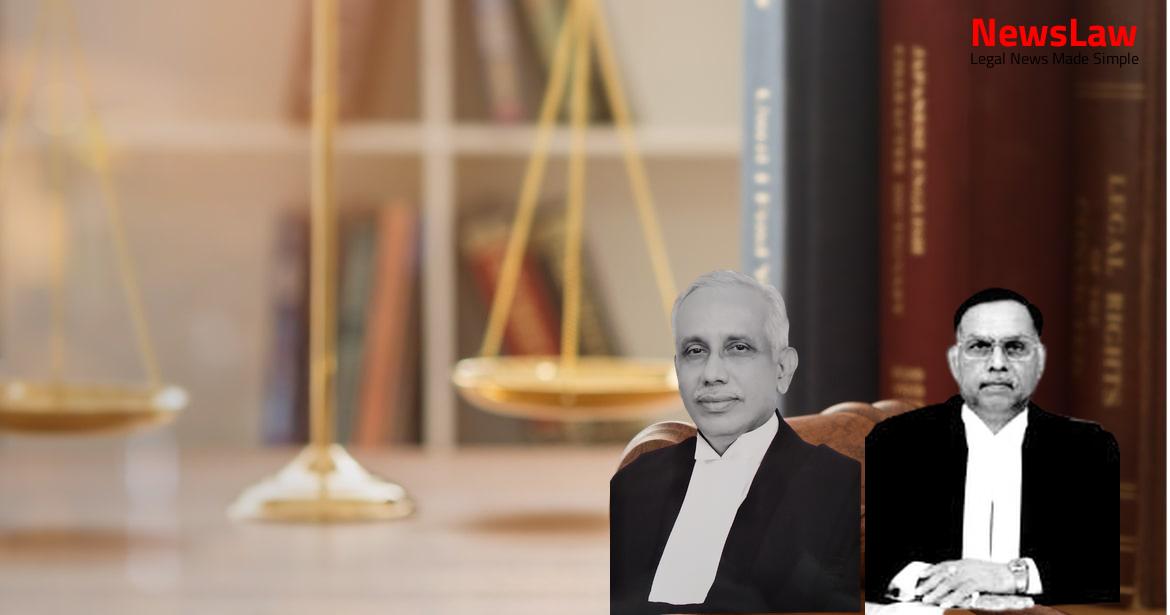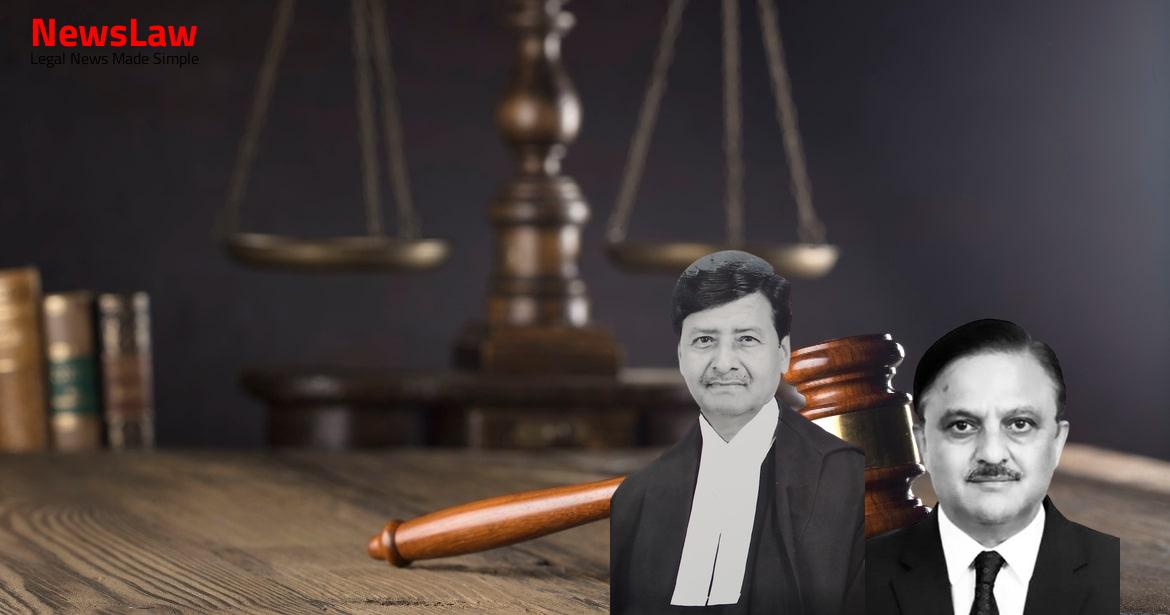Delve into the intricate legal analysis of jurisdictional challenges in judicial review, where courts examine the nuances of jurisdiction to determine the validity of orders. The focus is on the court’s interpretation of laws and precedents, shaping the outcome of the case. Stay tuned for a deep dive into the legal complexities at play.
Facts
- A petition was allowed by the Chairman of the Tribunal at the Principal Bench
- The challenge of the petition led to the passing of the final judgment and order dated 29.10.2021 by the High Court
Also Read: Land Acquisition Act Interpretation Case
Issue
- The issue at hand is to determine the jurisdictional High Court having the power for judicial review regarding the order of transfer passed in P.T.No.215/2021.
- The Appellant challenges the High Court at Calcutta’s final judgment in WPCT No.78/2021 which set aside the order transferring O.A.No.1619/2021 from Kolkata Bench to the Principal Bench (New Delhi) under Section 25 of the Act.
- The respondent, a former Chief Secretary of West Bengal, filed O.A.No.1619/2021 in Kolkata Bench challenging disciplinary proceedings against him for failure to attend a review meeting chaired by the Prime Minister in May 2021.
- The Appellant sought the transfer of the case to the Principal Bench at New Delhi via P.T.No.215/2021.
- The determination of the jurisdiction of the High Court becomes crucial in deciding the validity of the order in P.T.No.215/2021 under Section 25 of the Act.
Also Read: Authority of CMM/DM to Appoint Advocate in Secured Asset Cases
Arguments
- The learned Solicitor General argued that the orders in question were unsolicited and should be expunged.
- The relevance of a Constitutional Bench decision in L. Chandra Kumar vs Union of India was emphasized to challenge the transfer order by the Principal Bench of the Tribunal.
- Reference was made to Section 5(7) of the Act to argue that the High Court at Calcutta lacked jurisdiction to review the orders in question.
- Citing Union of India vs A. Shainamol, IAS and Anr., it was argued that mere residence in a particular place does not confer jurisdiction on a Tribunal located there.
- A decision in JK Industries Ltd. & Anr. vs Union of India & Ors. was used to support the argument that the Procedural Rules should not override provisions of the parent statute.
- The Chairman of the Tribunal was reportedly subjected to harsh remarks in the High Court judgment, leading to a grievance from the Appellant.
- It was reiterated that challenges against orders of the Principal Bench of the Tribunal should be brought before the High Court of Delhi, within whose territorial jurisdiction the Principal Bench lies.
- The power of the High Court to exercise judicial superintendence over decisions of courts and tribunals within its jurisdiction was highlighted as part of the constitution’s basic structure.
- The learned counsel argued that the High Court rightfully exercised judicial review in examining the transfer order issued by the Chairman of the Tribunal.
- The argument was based on Article 226(2) of the Constitution of India, which grants powers to the High Court over territories where the cause of action arises.
- Reference was made to established legal positions in cases like Kusum Ingots and Alloys Limited vs. Union of India & Anr., Nawal Kishore Sharma vs Union of India & Ors., and Navinchandra N. Majithia vs State of Maharashtra & Ors.
- Despite the contentions based on these legal precedents, the respondent’s counsel, Dr. Abhishek Manu Singhvi, chose not to contest the issue and left it to the decision of the court.
Also Read: Analysis of Compensation Method in Land Acquisition Case
Analysis
- The High Court found undue haste in the disposal of P.T.No.215/2021 which led to scathing remarks against the Principal Bench of the Tribunal.
- The cause of action for challenging the transfer order is distinct from the original application filed before a particular Bench.
- A constitutional question cannot be determined in a vacuum, and it must have a nexus with the facts presented in the writ petition.
- Judges of higher courts must exercise judicial restraint and avoid strong terms against lower judiciary.
- The remarks made against the Chairman of the Tribunal were unwarranted and should have been avoided.
- The law acknowledges the fallibility of judges, allowing for appeals and revisions.
- The decision to transfer a case lies with the Chairman of the Tribunal after hearing both parties.
- The jurisdiction of High Courts and the Supreme Court is considered vital and forms part of the basic structure of the Constitution.
- The power to transfer cases should be used sparingly and with circumspection.
- The principle of natural justice and fair play must be upheld in all judicial actions.
- Courts excluding the Supreme Court and specified authorities cannot exercise jurisdiction over recruitment or service matters once jurisdiction is vested in the Tribunal.
- The Tribunal can allow multiple individuals with a common interest to file a single application or permit an association representing them to file an application.
- The Chairman has the authority to transfer a case from one Bench to another for disposal.
- Applications are typically filed with the Registrar of the Bench where the applicant is posted or where the cause of action arises.
- Retired or terminated individuals can file applications with the Registrar of the Bench where they reside.
- The Chairman has the power to transfer an Original Application from one Bench to another as per Section 25 of the Act.
- Judges of higher courts expressing lack of faith in subordinate judges damages administration of justice and public confidence in judiciary.
- Judges must exercise utmost judicial restraint and avoid using strong language or imputing corrupt motives to lower judiciary.
- Higher courts often come across unjustified orders from lower courts, which they modify or set aside.
- Lower judicial officers work under charged atmosphere and psychological pressure, making errors possible without improper motives.
- Respect for judiciary is maintained by refraining from using intemperate language and casting aspersions on the lower judiciary.
- The law declared by the Constitution Bench regarding jurisdictional High Court for challenging an order of transfer of an Original Application under Section 25 of the Act must be followed strictly.
- Jurisdiction for challenging an order of transfer under Section 25 lies with the High Court within the territorial jurisdiction of the Bench passing the order.
- In this case, the order transferring O.A.No.1619/2021 by the Principal Bench of the Central Administrative Tribunal at New Delhi falls under the territorial jurisdiction of the High Court of Delhi.
- Judicial review of an order of transfer under Section 25 can only be done by a Division Bench of the High Court where the Bench passing the order is located.
- The High Court of Delhi, being within the territorial jurisdiction of the Principal Bench at New Delhi, is the appropriate High Court to challenge the order of transfer.
- The High Court at Calcutta has exceeded its jurisdiction by entertaining a Writ Petition challenging the order passed by the Central Administrative Tribunal at New Delhi, despite not falling under its territorial jurisdiction.
Decision
- Pending applications disposed of.
- Writ petition WPCT No.78/2021 before High Court at Calcutta dismissed with liberty to assail before jurisdictional High Court.
- No finding or observation made regarding the order dated 22.10.2021 passed by Principal Bench of the Tribunal.
- Possibility to file a Writ Petition regarding the order mentioned above to be considered on its own merits in accordance with the law.
- Appeal allowed resulting in the impugned judgment in WPCT No.78/2021 by High Court at Calcutta being held as passed without jurisdiction and ab initio void.
- Impugned judgment and final order set aside.
Case Title: UNION OF INDIA Vs. ALAPAN BANDYOPADHYAY (2022 INSC 18)
Case Number: C.A. No.-000197-000197 / 2022



